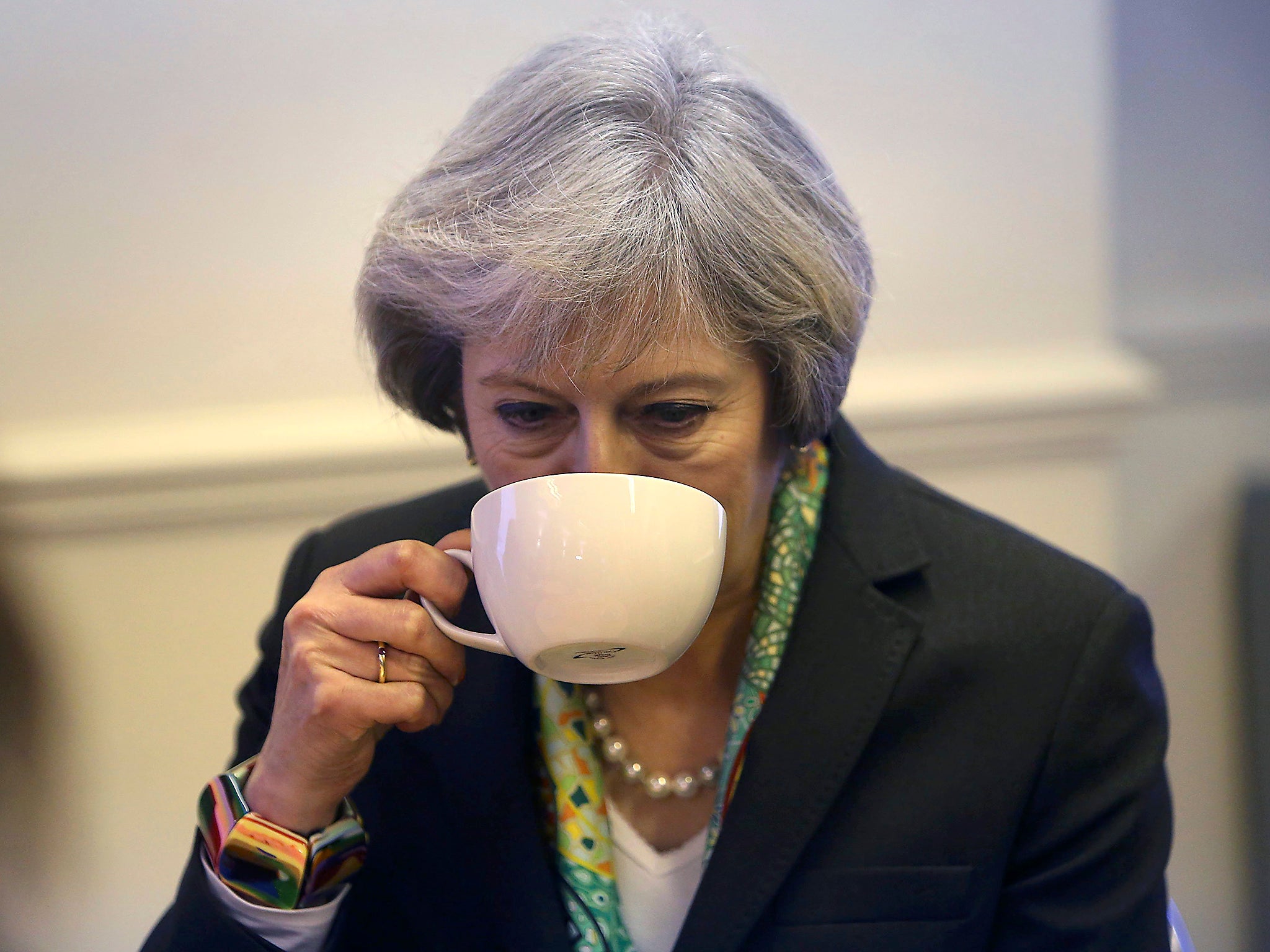Theresa May's 'honeymoon' is a record for a modern Conservative prime minister, pollsters say
As she reaches six months in Downing Street, the Prime Minister’s lead over Labour is unmatched among her post-war Tory predecessors

Your support helps us to tell the story
From reproductive rights to climate change to Big Tech, The Independent is on the ground when the story is developing. Whether it's investigating the financials of Elon Musk's pro-Trump PAC or producing our latest documentary, 'The A Word', which shines a light on the American women fighting for reproductive rights, we know how important it is to parse out the facts from the messaging.
At such a critical moment in US history, we need reporters on the ground. Your donation allows us to keep sending journalists to speak to both sides of the story.
The Independent is trusted by Americans across the entire political spectrum. And unlike many other quality news outlets, we choose not to lock Americans out of our reporting and analysis with paywalls. We believe quality journalism should be available to everyone, paid for by those who can afford it.
Your support makes all the difference.Theresa May today celebrates the most commanding “political honeymoon” of any modern Conservative prime minister, as she marks six months in Number 10.
As she reaches the landmark date, Ms May is basking in a 14-point lead over Labour, according to an average of polls.
The huge margin dwarfs the slender one-point lead that David Cameron held over the Opposition when he reached six months in Downing Street.
In stark contrast, Margaret Thatcher’s government was an average of five points behind in the polls – while John Major was six points down.
Ms May’s dominance comes despite growing criticism that she lacks a strategy for Brexit, raising the risk that Britain will crash out of the EU with economic damage.
The Government is also under growing pressure over a “crisis” in the NHS because of underfunding, with A&E departments swamped and social care crumbling.
One pollster said the apparent contradiction was explained more by the “shipwrecked state of the Opposition” than by Ms May’s actions.
Nevertheless, her bumper honeymoon will delight Conservatives as she enters her most challenging period, with the promised triggering of Article 50 by the end of March.
The Press Association has analysed the poll ratings for every government of the past 60 years precisely six months into the term of new prime ministers.
Four others have been behind at that point: Harold Macmillan (eight points – July 1957), Alec Douglas-Home (15 points – April 1963), Jim Callaghan (15 points – October 1976) and Gordon Brown (eight points – December 2007).
Harold Wilson was ahead by nine points on both occasions (April 1965 and September 1974), while Edward Heath enjoyed a two-point advantage in December 1970.
However, Ms May’s dominant position pales next to Tony Blair’s achievement after six months in office, in November 1997 – when his lead stood at an extraordinary 29 points.
Martin Boon, director of research at the polling company ICM, said the current poll figures “are as much to do with the shipwrecked state of the opposition as the new occupant of 10 Downing Street”.
He told the Press Association: “Despite perceived confusion over Brexit, policy inactivity and the lack of personal mandate, the Prime Minister can get away with most things largely because she’s not Jeremy Corbyn.
“Any objective analysis of Theresa May’s succession and subsequent performance would hardly qualify her initial six months as an outstanding and historic example of a government at the height of its powers.”
Anthony Wells, a director of polling for YouGov, said the longevity of Ms May’s poll success is highly unusual.
“Honeymoon periods for new prime ministers are traditionally two to three months,” he said.
“With the newspapers full of the NHS in crisis, and with mixed messages on the economy, you would have thought the honeymoon would have faded by now.
“Theresa May has been lucky in not having a strong opposition party, but the poll ratings might fall once Brexit negotiations begin – especially if the public starts to think she is either giving away too much or not being ambitious enough.”
Join our commenting forum
Join thought-provoking conversations, follow other Independent readers and see their replies
Comments